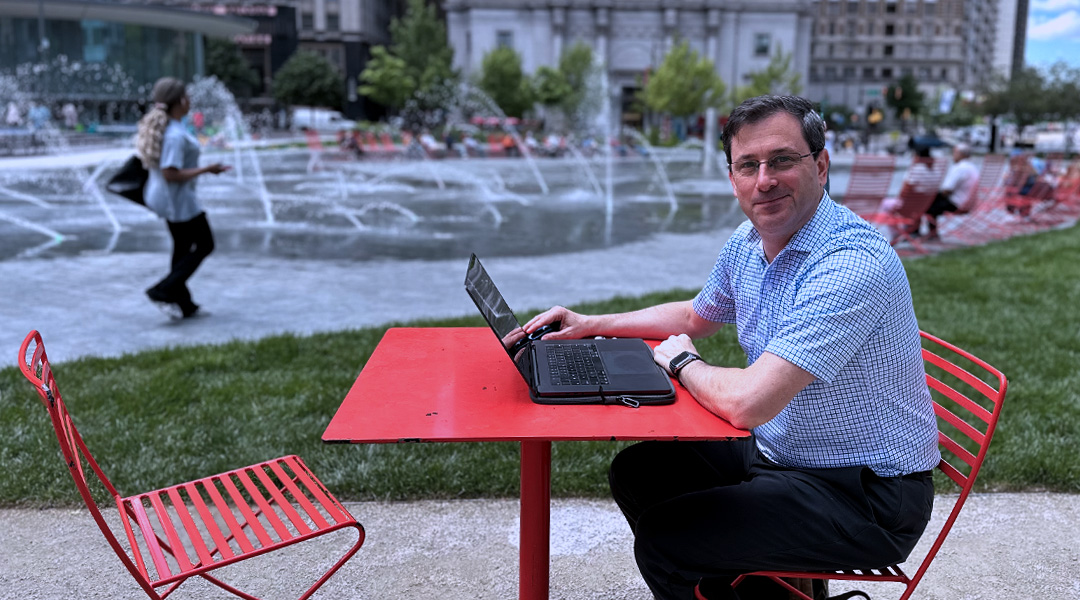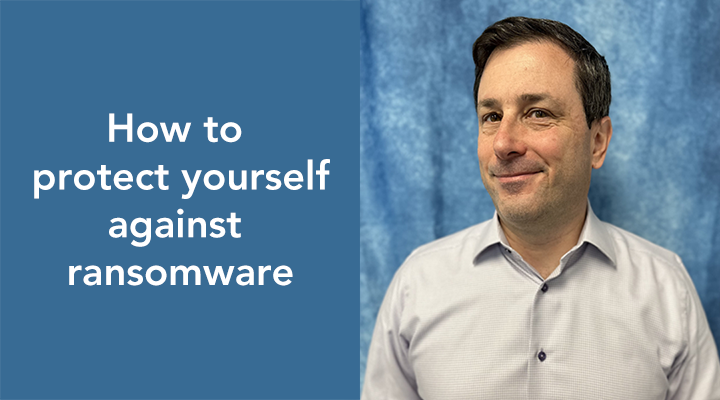… and Still Teaches Me Every Day
I attended a leadership conference on Wednesday, and in a break between sessions, I found a table in Love Park (here in Philadelphia, the City of Brotherly Love) and opened my laptop. It’s a routine I’ve repeated all over the city, more times than I can count, but this time, it was a beautiful spring day after a long winter, and I felt inspiration everywhere.
People were crisscrossing the plaza, some on their lunch break, some snapping photos of the iconic LOVE sculpture, and others deep in conversation with colleagues. And for a moment, I just watched the rhythm of the city. A city I’ve known my whole life.
As a fourth-generation Philadelphian, this place is stitched into who I am. It’s where I learned what it means to be part of a community. And more than that, it’s where I learned how to lead.
Many of the same values that shaped this city still shape how I run my business. They’re not just historical footnotes; they’re daily decisions. And whether you’re from Philly or not, I think they might resonate with you, too.
1. Lead with Respect… The Heart of “Brotherly Love”
Philadelphia was founded on the principle of brotherly love. William Penn didn’t just pick a nice-sounding name; he was serious about building a place where people treated one another with dignity.
That idea stuck with me. Respect is the starting point of any good relationship, not merely the reward for a job well done.
In our company, that shows up in how we give feedback, how we disagree, and how we manage hard conversations. We assume good intent. We look people in the eye. We listen.
And that doesn’t stop at the office door. When we work with clients (especially small business owners who are spinning a lot of plates) we don’t talk down to them like some other tech companies do. We aspire to grow those relationships into partnerships and even friendships.
2. Make Space for Different Voices… Tolerance Was a Founding Feature
Philadelphia was one of the first cities in the world built on the idea of tolerance: religious freedom, diverse backgrounds, and a mix of viewpoints. Penn believed those things made a city stronger, not weaker.
Today, we’d call that diversity and inclusion. And while I realize those terms have become a political hot potato in some quarters, within our office, it works to make us stronger. Having different points of view helps us understand our clients better and solve their problems faster.
Recently, our employees came together to define our company’s core values. We didn’t push it top-down; everyone weighed in. We settled on four – and one of them is diversity.
To me, that’s not just about backgrounds. It’s about thinking styles, work approaches, and ideas that challenge the norm. The best decisions we’ve made as a company often came from perspectives that didn’t match mine. And that benefits everyone.
The same goes for how we serve clients. We don’t hand them a standard-issue solution and tell them to make it work. We listen first. We learn what makes their business tick. Then we adapt—because their success depends on us understanding their perspective and pressures, not fitting them into an arbitrary formula.
3. Structure Should Help People Flourish… Not Box Them In
Philadelphia’s city plan was revolutionary for its time. Penn laid out wide streets, generous public squares, and green spaces that made room for people to live well, not just survive.
That always struck me. Structure wasn’t there to control people. It was there to let them breathe, move, and thrive.
Borrowing on this concept, we recently moved into new offices that give everyone a lot more space. The change has been dramatic. We also try to bring that same mindset to how we organize ourselves and our work. We have systems, yes; but they’re designed to reduce friction, not add layers. Our processes aim to help people focus on doing their best work, not chasing status updates.
We think the same way when we serve small businesses. If we’re helping a company streamline operations or improve their technology setup, we’re not just looking at efficiency. We’re thinking about what gives their team more breathing room. What unlocks their ability to thrive and compete without constant firefighting? That’s what structure should do, starting with technology.
4. Shared Responsibility Builds Stronger Teams… We’re All Stewards of Our Culture
Philadelphia didn’t just birth a nation. It showed what it looks like when people believe they’re accountable to something larger than themselves.
I try to carry that forward in how I lead. In our business, we don’t wait for permission to do the right thing. We encourage leadership at every level. You don’t need a title to take initiative or improve something broken.
Culture isn’t built by the CEO alone. It’s built by what each person does when no one’s watching.
That same belief guides how we serve our clients. If something in a client’s system looks off, we don’t always wait for a service ticket. Once our monitors show something isn’t working, we dig in. We speak up. We find a fix. Because that’s how you treat a client relationship — not like a contract, but like a shared responsibility.
Summing Up: Your Business Is Part of a Bigger Story
Philadelphia isn’t just a place. It’s a mindset. It’s a reminder that we’re always part of something bigger.
As business owners, we often get caught up in metrics, timelines, and tasks. But we’re shaping something much more lasting. We’re shaping how people experience their workday. How they feel about their jobs. How they connect with each other.
And that includes our clients, too. When we do our jobs well, people feel less overwhelmed. Their systems run smoother. Their energy goes to big ideas, not daily breakdowns.
So whether or not you’re from Philly, I hope you lead with the kind of intention this city was built on. Because leadership, like a great city, is something you shape every day.




